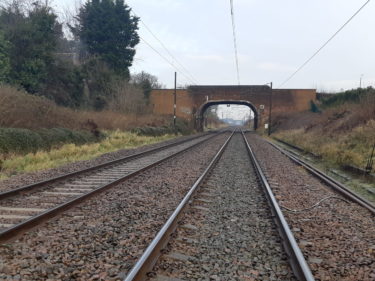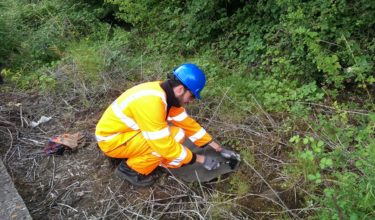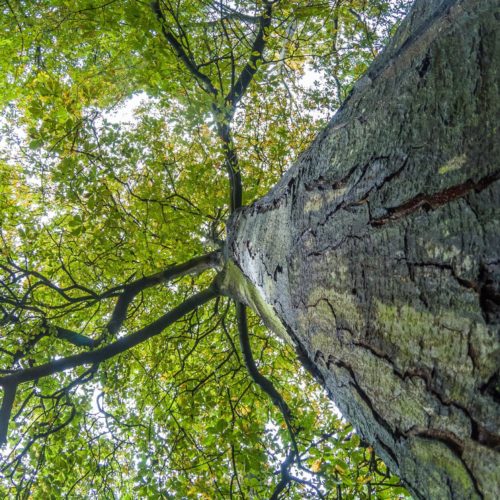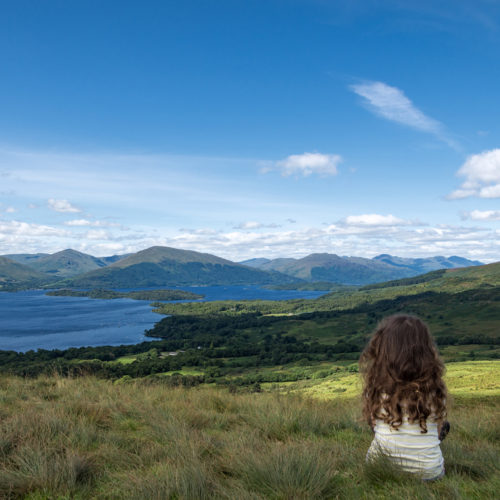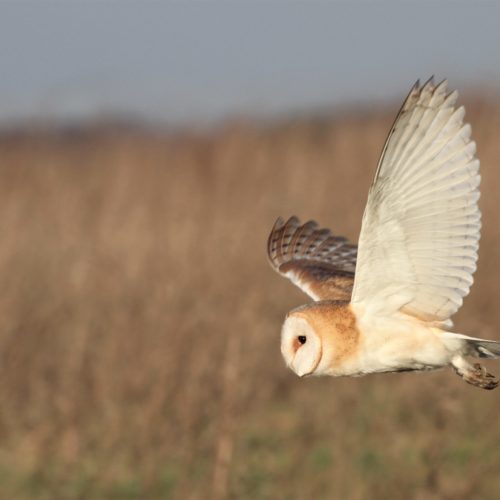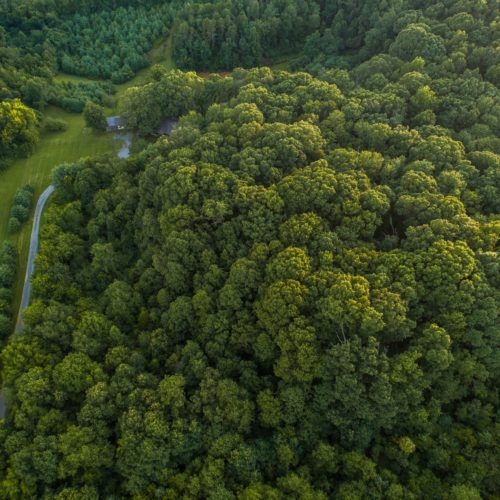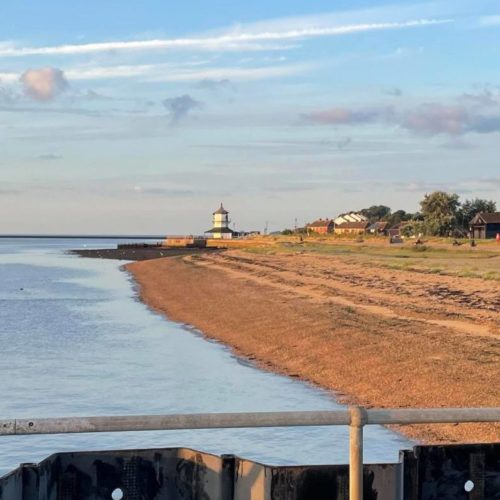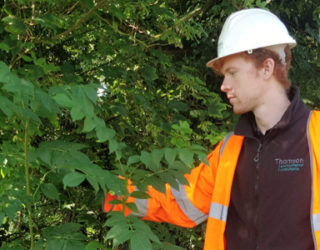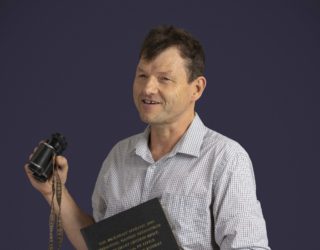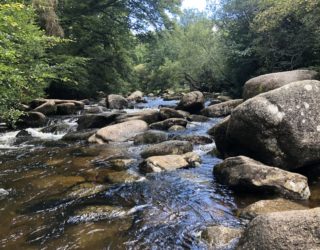At Thomson, our dedicated team of freshwater ecologists and hydrologists offers comprehensive advice and services to help you navigate all aspects of water resource management.
Water management consultants
With deep expertise across the spectrum of water management, we understand that each individual project is unique. That’s why we pride ourselves on delivering tailored, inventive solutions that address your specific water consultancy needs – no matter how complex they may be.
Operating alongside our hydrological hydrological consultants, our aquatic ecologists set the standard when it comes to regulatory and investigatory water consultancy for river and estuary environments. From navigating regulatory constraints, to implementing sustainable environmental strategies to minimise the ecological impact of operations, our practical guidance ensures you achieve your goals and build long-term resilience in your water management practices.
Our freshwater ecology services
To address the unique challenges that come with freshwater environments, we offer a comprehensive range of solutions, including:
- Water quality monitoring and assessment
- Hydrogeology & hydrology solutions
- Freshwater surveys and monitoring
- Freshwater impact assessments
- Catchment management
- Surface Water Drainage and Sustainable Drainage Systems (SuDS) assessments
To find out more about how our water consultancy services can help you, get in touch with a member of our friendly team today.
Freshwater consultancy: case studies
Over the last 20 years, our team of freshwater ecologists has helped hundreds of clients from a wide range of sectors, to successfully address their water management challenges and achieve positive ecological outcomes. View our selection of case studies here.

Meet our freshwater ecology team
With broad industry experience, our water management consultants bring an ever-evolving understanding of regulatory frameworks, ecological principles, and practical implementation strategies. Visit our meet the team page to find out more.
To find out how our freshwater consultants can help with your project, complete our online form or give us a call on 01483 466 000.
Water consultancy knowledge hub
Visit our knowledge hub for everything from interviews with our aquatic consultants, to in-depth freshwater management advice and the latest news and insights surrounding water resource management.
Freshwater Ecology FAQs
Please find below answers to some of our most commonly asked questions around our water consultancy services:
Do you have specialist river ecologists?
Yes, we have water consultants that specialise in all types of aquatic environments, from rivers and lakes to wetlands and even artificial water bodies.
What sets Thomson EC apart from other water consulting companies?
There are so many things that set us apart from other consultancies. One of which being our award-winning Thomson Interactive Mapping (TIM) system, which provides valuable, real-time data access and oversight for water projects. Our specialist appointment to the Environment Agency’s EcoSF4 framework for specialist macroinvertebrate services is something we’re especially proud of, which has highlighted our trusted status within the UK regulatory landscape for water. But most of all, our integrated, client-centric approach is what truly sets us apart. We don’t just offer services; we partner with you to find solutions that genuinely work for your business and the environment.
Where do you offer your freshwater consultancy services?
We offer freshwater consultancy services to individuals and organisations in all areas of the UK.
What services does your freshwater ecology and hydrology team provide?
- Ecological baseline surveys, fish, and aquatic
invertebrate sampling - MoRPh surveys
- River Condition Assessments (RCA)
- Water Framework Directive (WFD) assessments
- Hydrological monitoring and assessments
- Neutrality assessments
- Flood Risk Assessments (FRAs)
- Advice on Sustainable Drainage Systems (SuDS)
- Nature-based solutions (NBS) and river restoration.
We offer planning support for developments near waterbodies, including Flood Risk Activity Permits (FRAPs) and Marine
License Applications.
When should I commission a freshwater survey for my project?
Survey timing is critical. Many assessments, such as aquatic invertebrates or MoRPh surveys,
are seasonally restricted (spring to early autumn). Early consultation helps ensure you meet
planning deadlines and ecological requirements.
What is a River Condition Assessment, and do I need one?
A River Condition Assessment (RCA) is used to measure the ecological condition of rivers as
part of Biodiversity Net Gain (BNG) calculations. If your development affects a river or stream,
RCA may be required to inform mitigation or demonstrate net gain. Our team is fully trained in
the official methodology and data submission requirements.
Can you help with compliance for the Environment Agency (EA), NRW, or SEPA?
Yes. We routinely work with the EA, NRW, and SEPA, providing data and reporting for WFD
compliance, drought monitoring, discharge consents, abstraction licensing, and Flood Risk Activity
Permits (FRAPs) and mitigation strategies.
How do you assess the ecological status of a river or waterbody?
We use biological indicators like macroinvertebrates, macrophytes, and fish, combined with
morphology, hydrological, and physico–chemical data. All assessments align with UKTAG and
WFD standards to ensure credibility and acceptance by regulators.
How do your assessments feed into planning applications or Biodiversity Net Gain?
For BNG, we can supply River Condition scores, Habitat Condition Assessments, and offsetting
advice, ensuring you meet local policy and statutory requirements. We conduct nutrient
neutrality assessments, providing advice to enable developments to achieve nutrient neutrality.
What are the typical turnaround times for surveys and reports?
completing fieldwork. We offer fast–track services for urgent projects, subject to availability and
survey constraints.
How do you ensure quality and consistency in your assessments?
as WFD protocols, River Condition Assessment guidance, and MoRPh training standards, and
we follow rigorous QA processes.

